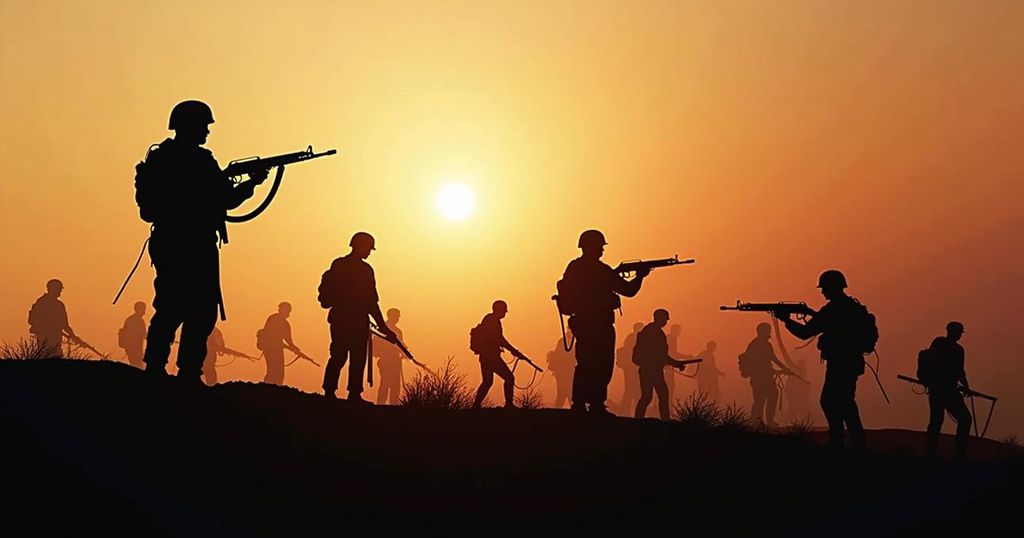Iran has announced that it will not deploy military forces to Lebanon or Gaza to combat Israel, asserting that local militias are capable of defending themselves. This statement follows recent Israeli airstrikes targeting Iranian-aligned groups, including Hezbollah, in which its leader Hassan Nasrallah was reportedly killed. Despite claiming no need for military involvement, Iran has vowed to retaliate against Israeli actions.
On Monday, the Iranian Foreign Ministry officially declared that it would not deploy military forces to Lebanon or Gaza in response to the ongoing conflict with Israel. Spokesman Nasser Kanani stated, “There is no need to send extra or volunteer forces of the Islamic Republic of Iran,” emphasizing that local groups in Lebanon and the Palestinian territories possess sufficient capability to defend themselves. This statement comes amidst reports of intensified Israeli airstrikes targeting groups aligned with Iran, notably in Lebanon, Syria, Yemen, and Iraq. In a recent attack, Israeli forces struck Beirut, reportedly resulting in the death of Hassan Nasrallah, the head of Hezbollah, a group extensively supported by Iran. Kanani communicated that Iran has not been requested to intervene, reassuring that Hezbollah and other affiliated forces do not require assistance from Tehran. Despite the declaration of non-involvement, Kanani affirmed that Israel would face consequences for its actions against Iranian citizens and military personnel, stating that such crimes will not go unpunished. Furthermore, Iranian President Masoud Pezeshkian paid his respects to Nasrallah at Hezbollah’s office in Tehran, reflecting the depth of ties between Iran and Hezbollah. Supreme Leader Ali Khamenei vowed that Nasrallah’s death would not go unavenged, with Iranian officials asserting that it could lead to severe repercussions for Israel.
The statement from Iran regarding its military involvement in the ongoing conflict between Israel and its regional allies comes against a backdrop of escalating tensions and violence. Recent Israeli airstrikes have targeted various groups affiliated with Iran across the Middle East, particularly in Lebanon and Syria. The Iranian military presence in the region and its support for groups like Hezbollah has long been a critical element of its foreign policy. The death of Hassan Nasrallah, a prominent figure in Hezbollah, has heightened the stakes and prompted Iranian leaders to declare vengeance. This complex geopolitical dynamic involves various actors, including regional militant groups, the state of Israel, and Iranian military forces, all of whom have vested interests in the outcomes of the ongoing confrontations.
In summary, Iran has officially denied any plans to send military forces to Lebanon or Gaza to fight Israel, asserting that local fighters are able to defend themselves. Despite this stance, Iranian officials have promised that severe repercussions await Israel for its actions, indicating that the situation remains fraught with tension. The death of Hezbollah leader Hassan Nasrallah has intensified Iran’s commitment to supporting its allies in the region, and the complex interplay of military and political strategies continues to evolve as the conflict progresses.
Original Source: english.alarabiya.net







